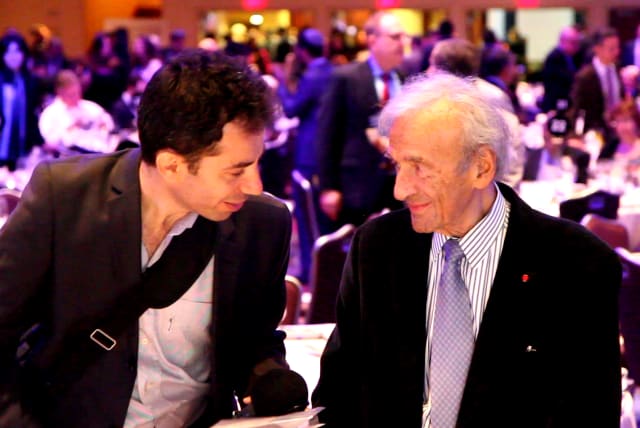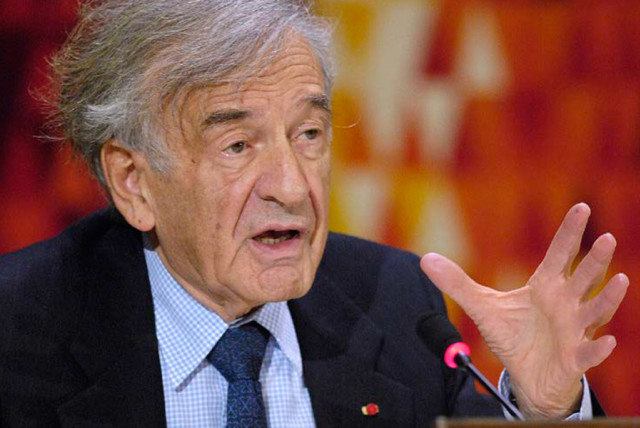Documentary 'The Shoshani Riddle' takes KAN 11

The Shoshani Riddle has become a cult movie as it has screened at cinematheques around Israel for several months, with audiences staying to hear more about Shoshani at enthusiastic Q&A sessions.
Mr. Shoshani, the subject of Michael Grynszpan’s documentary, The Shoshani Riddle, which will be shown after the news on KAN 11 on May 4, was the most inspiring teacher his students had ever met. He taught sacred Jewish texts at a higher level than they had ever experienced before, and gained a devoted following that included Nobel Prize laureates and philosophers.
But Mr. Shoshani was also disheveled, traveling the world in the tattered clothes of a homeless man.
He was known as Shoshani in some places, and by different names at other times and in other places.
Mr. Shoshani was a Holocaust survivor. Or was he? Some claimed Mr. Shoshani was a Moroccan-born expert on the Quran.
Mr. Shoshani lived on several continents and left behind a wealth of writing, but no one knew where. Or maybe he didn’t.
One thing is clear: These contradictory reports motivated Grynszpan, a French-born documentary filmmaker in Tel Aviv, to devote more than a decade to uncovering the truth about him, which culminated in him making The Shoshani Riddle.
“I heard of him as a young man in France,” said Grynszpan. But what really convinced him to make a documentary about Shoshani was a meeting with a kibbutznik years later, who told the filmmaker how this teacher had changed his life. “He said, ‘There was no one like him,’ and I saw the light in his eyes and I knew I had to make the movie.”
While, of course, there are excellent teachers all over, “There is a difference between someone just learning piano and the greatest piano player in the world. He was teaching Torah and the Gemara all over, and sometimes also mathematics and philosophy. And everyone said they had never met anyone who was such a genius.”
Elie Wiesel in France
Among those whose lives he touched were French philosopher Emmanuel Levinas and Nobel Peace Prize laureate Elie Wiesel, who studied with Shoshani in France after the Holocaust. The Shoshani Riddle includes an interview with Wiesel, who reminisces eloquently about his former teacher, in a meeting that the documentary filmmaker spent more than two years trying to arrange.
The staff for Wiesel, who passed away in 2016, would not schedule an interview with Grynszpan, but the director managed to speak to Wiesel at an event, telling him he wanted to hear more about Shoshani, and Wiesel quickly made time to talk about the teacher to whom he felt he owed so much.
As the director traveled the world to learn more about this enigma, even visiting Uruguay where Shoshani was buried, he began to focus more on finding Shoshani’s writings, which he was not sure at first even existed. His quest to locate the writings and then to figure out what they mean is one of the most fascinating parts of the film. “The truth is that I cried when I found the notebooks,” he admits. While some of these writings were stolen and others were auctioned off, most are now at the National Library of Israel, where scholars are writing dissertations on them. Much of these writings combine analysis of Jewish texts with mathematics, philosophy, and science.
“Studying his notebooks, most of the time we don’t understand what he means, and it’s a good feeling, because there is so much to learn there.”
The Shoshani Riddle has become a cult movie as it has screened at cinematheques around Israel for several months, with audiences staying to hear more about Shoshani at enthusiastic Q&A sessions.
“I get so many messages from people who say, ‘This film changed my life.’” Following the KAN 11 screening on Saturday, which was already postponed once due to breaking news, Grynszpan hopes to bring the movie to film festivals around the world.
“He was the archetype of the Wandering Jew,” said Grynszpan. “The fact that he kept his identity a secret, that no one knows who he really was, it shows that those facts are not so important... He leaves us with more questions than answers and we understand that he had so much to teach us.”
Jerusalem Post Store
`; document.getElementById("linkPremium").innerHTML = cont; var divWithLink = document.getElementById("premium-link"); if (divWithLink !== null && divWithLink !== 'undefined') { divWithLink.style.border = "solid 1px #cb0f3e"; divWithLink.style.textAlign = "center"; divWithLink.style.marginBottom = "15px"; divWithLink.style.marginTop = "15px"; divWithLink.style.width = "100%"; divWithLink.style.backgroundColor = "#122952"; divWithLink.style.color = "#ffffff"; divWithLink.style.lineHeight = "1.5"; } } (function (v, i) { });

